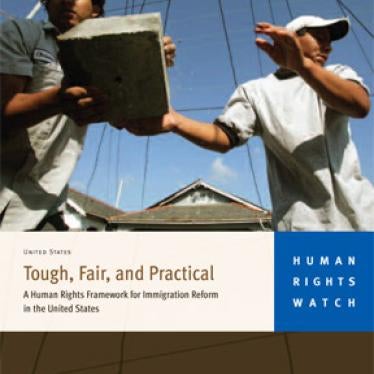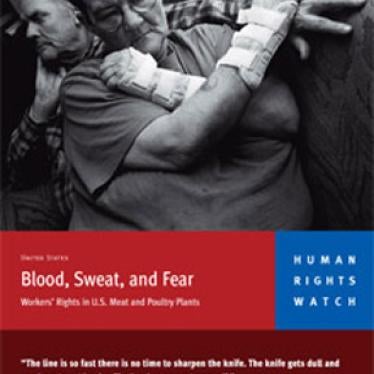"I hung the live birds on the line," Luis said, holding out his swollen, clawlike hands. "Grab, reach, lift, jerk. Without stopping, for hours every day. Only young, strong guys can do it. But after a time, you see what happens. Your arms stick out and your hands are frozen. Look at me now. I'm 22 years old, and I feel like an old man."
The man and his similarly impaired co-workers, interviewed for a Human Rights Watch report about poultry workers, were living examples of what happens when workers don't get adequate protection. But Montana seems to be going in the wrong direction. On Jan. 19, the Montana State House passed a bill that would deny worker's compensation to unauthorized immigrant workers. House Bill 71 would violate the rights of unauthorized workers in Montana. It also would threaten the rights of its citizen workers.
House Bill 71 would, in fact, make Montana work sites more dangerous, lead to more injuries for Montana workers as a whole, and cost Montana businesses money.
The legislation would, in effect, offer incentives to businesses both to hire more unauthorized workers, and to do less to maintain safe work sites. We found in interviewing the poultry workers that even with workers' compensation available, immigrant workers at meat and poultry plants consistently under-reported their worksite injuries, fearing reprisals. Under this bill, businesses that traditionally hire unauthorized workers would be able to continue to do so but without having to include them on their workers' compensation rolls.
This would mean that any injuries suffered by unauthorized workers would not need to be reported to the state. Consequently, a business's reported injury rate would drop, and along with it, the premiums the business would pay.
Businesses would also have less incentive to keep work sites safe. But businesses that hire unauthorized workers hire authorized workers as well, who will be working on those same dangerous work sites. HB71, if passed, would result in legal workers working in more dangerous work sites. This is likely to lead to more injuries for other Montana workers as well.
But HB71 isn't really likely to save businesses money. If a worker is denied participation in the workers' compensation system, he still can sue the employer. A sympathetic jury could hold an employer liable for significant damages. This is why the workers' compensation system came into being in the first place - to create a predictable and efficient system of compensating a worker for injuries.
Money aside this bill would violate workers' rights. International human rights law binding on the United States upholds a government's right to enforce immigration law at the border or elsewhere. But once someone is hard at work and becomes injured on the job, both federal and international human rights law provide that they are entitled to compensation for their work site injuries.
HB71 would create more problems than it solves. It would cost businesses, make work sites more dangerous and hurt US citizens alongside their migrant co-workers.
Most important, HB71 would violate the basic right to a safe work place in Montana. The Montana Senate should kill the bill.
Antonio Ginatta is advocacy director for the U.S. program at Human Rights Watch.








